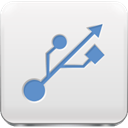Top USB for Remote Desktop Alternative Solutions for Seamless Connectivity
USB for Remote Desktop is a popular application designed to redirect USB devices to your remote session, making them accessible as if they were directly connected to the remote machine. While it excels at bridging the gap between local USB peripherals and remote desktop environments, users often seek alternatives for various reasons, including specific feature requirements, platform compatibility, or budget considerations. This article explores some of the best USB for Remote Desktop alternative options available today, helping you find the perfect solution for your remote USB connectivity needs.
Top USB for Remote Desktop Alternatives
Whether you're looking for open-source flexibility, advanced features, or specific platform support, these alternatives offer robust solutions for extending USB device access over a network.

VirtualHere
VirtualHere allows USB devices to be used remotely over a network just as if they were locally connected. It's a commercial solution available on Mac, Windows, Linux, Android, and Raspbian, making it highly versatile for various environments including Raspberry Pi setups. Key features include the ability to share USB devices, hardware keys, and enable USB over Wi-Fi, making it a strong contender as a USB for Remote Desktop alternative.

USB/IP
The USB/IP Project is an open-source and free alternative that aims to develop a general USB device sharing system over IP networks. It allows sharing USB devices between computers with their full functionality. Available on Windows and Linux, USB/IP is a great choice for users seeking a no-cost, community-driven solution for USB redirection, directly competing with the functionality of USB for Remote Desktop.

FlexiHub
FlexiHub is a commercial software solution designed to share USB and serial devices over a network. It provides an easy and convenient way to access a remote USB port over IP. Compatible with Mac, Windows, and Linux, and offered as a Software as a Service (SaaS), FlexiHub stands out with its dedicated remote desktop feature, making it a powerful and user-friendly USB for Remote Desktop alternative.

USB Network Gate
USB Network Gate is a commercial solution that eliminates problems accessing and managing USB devices plugged into remote computers. With support for Mac, Windows, Linux, and Android, it offers a robust RDP feature that allows seamless integration with remote desktop environments, positioning it as a comprehensive USB for Remote Desktop alternative.

USB over Network
USB over Network is a commercial, user-friendly application that enables access to USB devices over LAN or the Internet. It supports Windows and Linux and offers a portable version, making it flexible for various deployment scenarios. Its focus on easy remote USB device access makes it a viable and practical USB for Remote Desktop alternative.

Donglify
Donglify is a professional-grade commercial software solution specifically designed for sharing USB security dongles over a network connection. Available on Windows, it eliminates the need for physical dongle presence at the remote machine, making it an excellent specialized USB for Remote Desktop alternative for environments reliant on USB dongle licensing.

USB over Ethernet
USB over Ethernet is a commercial application that allows users to share USB devices over Ethernet or the Internet, accessing remote USB devices as if they are plugged into their local computer. Primarily for Windows, it offers reliable USB redirection capabilities, making it another strong USB for Remote Desktop alternative for businesses and individuals.
Choosing the best USB for Remote Desktop alternative depends on your specific requirements, including budget, desired features, and platform compatibility. By exploring these options, you can find a solution that seamlessly extends your USB device access to remote environments, ensuring efficient and productive workflows.